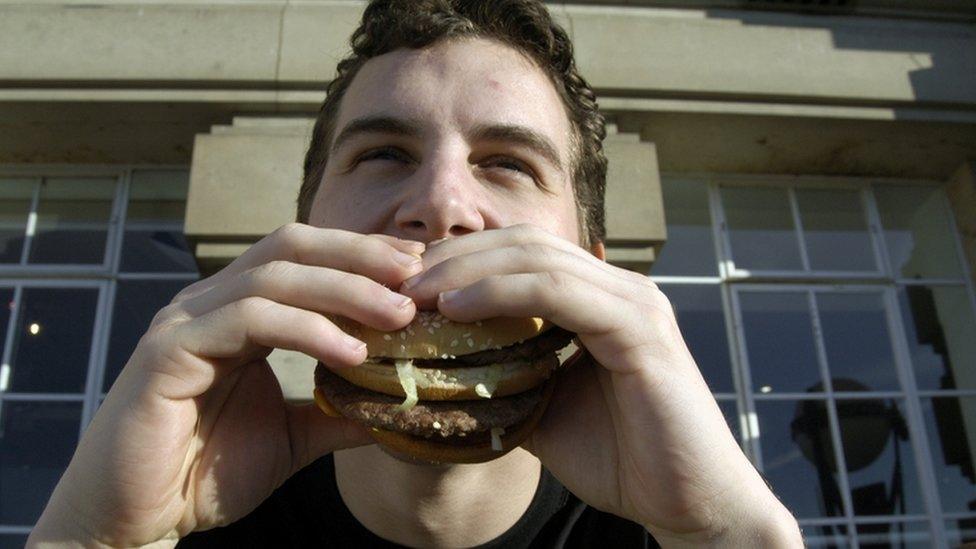'Pink slime': Meat processer seeks $5.7bn in defamation case
- Published

'Pink slime' had been common in fast food restaurants and grocery stores before the TV reports
A trial has begun in South Dakota over a meat processer's claim that it was defamed by ABC News reporting that dubbed its product "pink slime".
Beef Products Inc (BPI) argues ABC and its journalist ruined its reputation in 2012 reports on "lean finely textured beef", as the industry calls it.
BPI says ABC's "disinformation campaign" caused the meat processer's revenues to drop by 80%.
They are suing ABC for up to $5.7bn (拢4.4bn) in damages.
During a hearing in January, a lawyer for BPI told the judge that ABC had engaged in "fake news".
In the reporting by ABC's Jim Avila, the term "pink slime" was used 137 times, as he described the process which creates it.
Could 'pink slime' be rebranded?
The beef trimmings are placed in a centrifuge in order to separate the lean meat from fat, before it is treated with ammonia to remove bacteria.
The term "pink slime" was coined by Gerald Zirnstein, a former Agriculture Department scientist, who initially used it in an email to colleagues in 2002.
Grocery stores across America dropped products containing "pink slime" after the ABC reports aired.
The processed trimmings were also once found in fast-food served by McDonald's, Taco Bell and Burger King.
BPI, which primarily produces the beef trimmings, shut down three of its four production plants following the reports.
ABC lawyers argue they are protected under the US constitution's first amendment, which ensures a free press.
The television network, which is owned by Walt Disney Company, argues that BPI must prove ABC's reporters acted with "actual malice" to harm the company.
"We believe in the principle that people deserve to know what's in the food they eat and are confident that when all the facts are presented in court, ABC's reporting will be fully vindicated," said Kevin Baine, a lawyer representing ABC.
The trial in the rural town of Elk Point, population 2,000, just north of BPI's headquarters, is expected to last eight weeks.
- Published16 March 2012
- Published6 April 2012
- Published12 December 2012